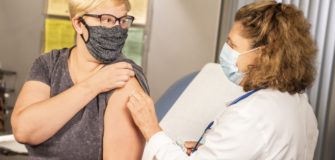Mental health discussions led by expert for World Suicide Prevention Day
Share
Ahead of World Suicide Prevention day, a Monash University expert is available for mental health discussions on how the pandemic has affected many young people and how parents and teachers can help young people to seek mental health support.
Dr Emily Berger, Senior Lecturer in the School of Educational Psychology & Counselling, has opened an avenue for both adults and younger people to have mental health discussions to help destigmatize depression and anxiety. Dr Berger’s article on self-harm among children has helped people understand that mental illness has many faces, and that even the smallest line of support can turn a very dire situation around before it gets too late.
Dr Berger’s recent article at Monash Lens, titled “More children are self-harming since the start of the pandemic. Here’s what parents and teachers can do to help,” also talks about how lack of socialisation can magnify feelings of loneliness in young people. Her findings can help protect younger people from the act of self-harm, and aid adults to navigate a delicate situation.
The following can be attributed to Dr Berger:
“The stress, anxiety and uncertainty caused by the pandemic are key factors that are driving self-harm in young people. The pandemic has also removed factors that might protect young people from self-harm, such as socialising and activities.
“The pandemic has worsened the gap between service needs and service access for young people to access mental health services. Given this and the rise in self-harm presentations, parents and teachers need skills to know how to respond to young people who self-harm.”
Dr Berger further states, “Parents and teachers are encouraged to help young people seek mental health support and respond in a calm manner when a child is known to have self-harmed. Children who self-harm often experience feelings of guilt and embarrassment after self-harming.
“While not all children who self-harm are also suicidal, young people who self-harm are at greater risk of suicide. Therefore, parents and teachers should access support from a psychologist or other mental health professional who can conduct a risk assessment with the young person and help the young person to develop strategies and skills to prevent further self-harm.”
For any other topics on which you may be seeking expert comment, please contact the Monash University Media Team on +61 3 9903 4840, or at media@monash.edu.
Original story found on the Australian Government Department of Health website. Note: Content has been edited for style and length.
Nina Alvarez is a Content Producer for Healthcare Channel. Her interests include writing, particularly about the healthcare sector and the many ways it can improve to further benefit people from all walks of life.













